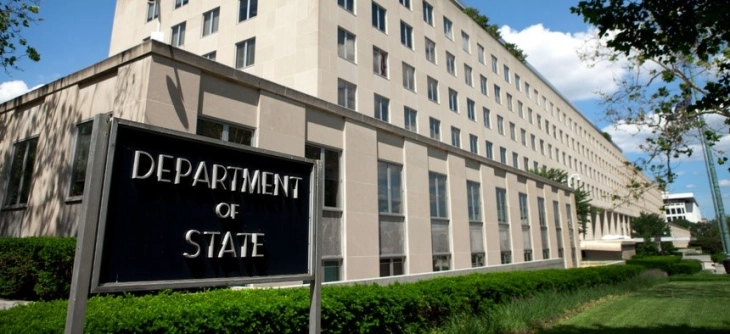State Department: Gov’t continues with measures to improve investment climate in North Macedonia

Washington, 23 July 2021 (MIA) – The new government, ratified by parliament on August 30, 2020, has taken steps to improve the investment environment in the country, according to the 2021 Investment Climate Statement on North Macedonia released by the U.S. State Department on Friday.
“Ministers without Portfolio, who previously shared the responsibility to attract FDI, were removed, and the Office of the Deputy Prime Minister for Economic Affairs now coordinates government activities related to foreign investments, simplifying the process. Additionally, in an effort to tackle corruption, the State Commission for the Prevention of Corruption has opened a number of corruption-related inquiries, including those involving high-level officials,” reads the statement.
According to the State Department, there are several areas to watch in 2021.
“In 2020, Embassy Skopje identified ICT as an emerging sector ripe for U.S. investment as the government has recently focused on providing a better environment for technology development. North Macedonia’s location is an advantage as companies consider “near-shoring” their production to be closer to consumption centers in Europe following the pandemic-induced production shortfall in 2020,” the statement says.
It points out that the COVID-19 pandemic has deeply impacted the country’s economy and ability to absorb foreign investment.
“Though the government’s efforts to divert manufacturing toward necessities and control prices at the outset of the pandemic are largely over, restrictions over people’s movement and a significant increase in unemployment have limited consumption and slowed the services required to open a business,” the statement reads.
In addition, the pandemic has sharply reversed the country’s GDP growth, going from an increase of 3.2 percent in 2019 to a decrease of 4.5 percent in 2020, “though in March the government forecasted the economy would grow 4.1 percent in 2021.”
“The virus will likely have extensive, albeit currently unclear, impacts on the economy through 2021 and beyond,” the U.S. State Department adds.
However, the report points out, the country’s overall regulatory environment remains complex, and frequent regulatory and legislative changes, coupled with inconsistent interpretation of the rules, create an unpredictable business environment conductive to corruption.
“While doing business is generally easy in North Macedonia and the legal framework is largely in line with international standards, corruption is a consistent issue,” adds the report.
The State Department notes that North Macedonia, an EU aspirant country and a NATO member since March 2020, continues to be receptive to U.S. commercial investments.
Attracting FDI, the statement says, remains one of the government’s main pillars of economic growth and job creation, although the COVID-19 pandemic prevented government officials from engaging with potential investors in person in 2020.
According to the U.S. State Department, there are no laws or practices that discriminate against foreign investors.
“In March 2018, the government passed its “Plan for Economic Growth”, to foreign companies operating in the 15 free economic zones,” reads the report.
The State Department notes that the 2020 World Bank Doing Business Report ranked North Macedonia the 17th best place in the world for doing business, down seven spots from the previous year. Fitch Ratings downgraded North Macedonia’s previous credit rating from BB+ with a stable outlook to BB+ with a negative outlook, and Standard & Poor’s affirmed its credit rating at BB- with a stable outlook. Large foreign companies operating in the Technological Industrial Development Zones (TIDZ) generally report positive investment experiences and maintain good relations with government officials, according to the State Department.
In addition, the statement points out that North Macedonia doesn’t maintain a “one-stop-shop” for FDI, requiring investors to navigate through several bureaucratic institutions to implement their investments.
However, “the government maintains contact with large foreign investors through frequent meetings and formal surveys to solicit feedback. Large foreign investors have direct and easy access to government leaders, whom they can contact for assistance to resolve issues. The Foreign Investors Council advocates for foreign investors and suggests ways to improve the business environment.”







